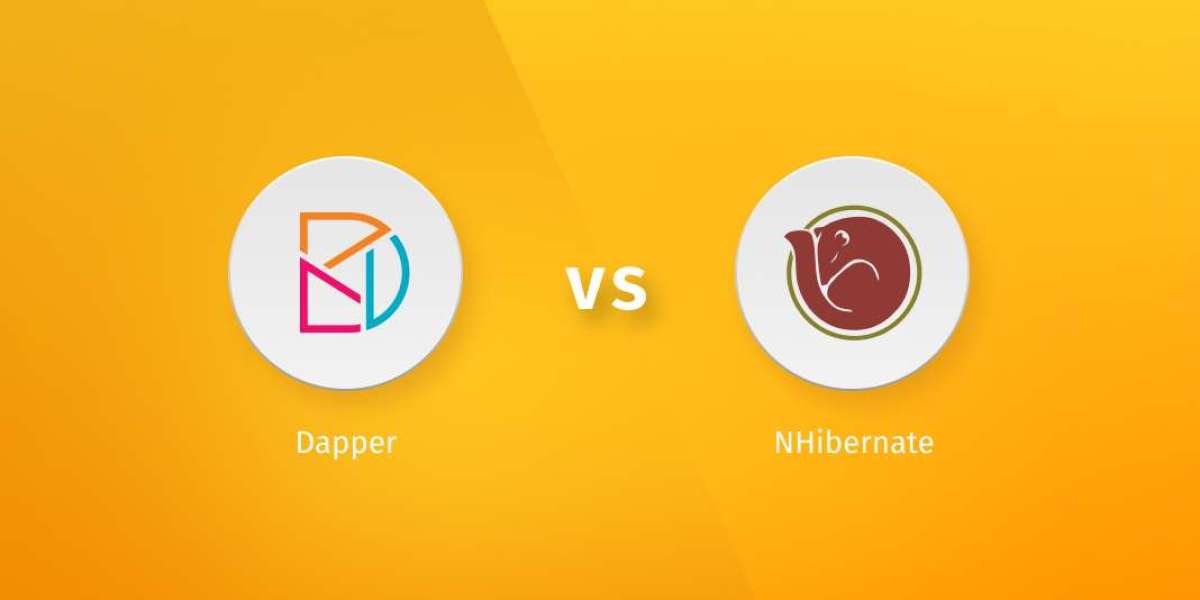When developing .NET applications that interact with databases, developers have several Object-Relational Mapping (ORM) tools at their disposal. Two popular choices are NHibernate and Dapper, each offering a distinct approach to data access. Understanding their differences is crucial for making an informed decision based on your project's specific needs.
NHibernate: The Comprehensive ORM
NHibernate is a mature and powerful ORM framework that provides a high level of abstraction over database interactions. It allows developers to work with database tables as objects, eliminating the need to write most SQL queries manually.
Key Features and Benefits of NHibernate:
- Object-Relational Mapping: NHibernate handles the mapping between .NET classes and database tables, automating data persistence and retrieval. This allows developers to focus on the application's domain model rather than SQL.
- Rich Mapping Capabilities: It supports various mapping strategies, including XML, Fluent API, and attribute-based mapping, offering flexibility in defining how objects relate to database schemas. It can handle complex relationships, inheritance, and composite keys.
- Automatic Change Tracking: NHibernate tracks changes made to loaded entities and automatically generates the necessary SQL to update the database, reducing boilerplate code.
- Lazy and Eager Loading: It provides mechanisms for controlling when related data is loaded from the database, optimizing performance by fetching only necessary information.
- Caching Mechanisms: NHibernate offers first-level (session-level) and second-level (application-level) caching to reduce database trips and improve performance for frequently accessed data.
- LINQ Integration: NHibernate integrates with LINQ (Language Integrated Query), allowing developers to query the database using a strongly-typed syntax within their .NET code. It also supports its own HQL (Hibernate Query Language), offering more control for complex queries.
- Cross-Database Compatibility: NHibernate supports a wide range of database systems, requiring minimal changes to the codebase when switching databases.
- Mature Ecosystem: Being a long-standing project, NHibernate has a large and active community, extensive documentation, and numerous third-party extensions and tools.
Dapper: The Lightweight Micro-ORM
Dapper is a lightweight "micro-ORM" that focuses on speed and simplicity. Developed by the Stack Overflow team, it acts as an extension to ADO.NET, providing a thin layer of abstraction for mapping query results to .NET objects.
Key Features and Benefits of Dapper:
- Performance: Dapper's main strength is its speed. By directly executing SQL queries through ADO.NET and performing minimal object mapping, it offers performance close to that of raw SQL.
- Simplicity: Dapper has a straightforward API that is easy to learn and use, especially for developers familiar with SQL. It requires minimal configuration.
- Full SQL Control: Dapper allows developers to write their own SQL queries, providing complete control over database interactions and enabling optimization for specific scenarios.
- Flexibility: It works with any database supported by ADO.NET and doesn't impose specific conventions or patterns on the application's data model.
- Multi-Mapping: Dapper supports mapping the results of a single query to multiple objects, which is useful for handling joins.
- Lightweight: Dapper has a small footprint and introduces minimal overhead to the application.
- Extension Methods: Dapper extends the IDbConnection interface with useful methods for executing queries and mapping results.
Which One Should You Choose?
The choice between NHibernate and Dapper depends on the specific requirements of your project:
- Choose NHibernate when:
- Your application has a complex domain model with intricate relationships.
- You prioritize developer productivity and reduced boilerplate code for data access.
- Features like automatic change tracking, lazy loading, and caching are essential.
- You prefer to work with LINQ or a high-level query language instead of writing SQL extensively.
- Cross-database compatibility is a significant requirement.
- You are building a large, long-term application where maintainability and abstraction are key.
- Choose Dapper when:
- Performance is a critical concern, especially for high-traffic applications or performance-sensitive parts of the system.
- You need fine-grained control over the SQL queries being executed.
- Your team has strong SQL skills and prefers to write and optimize SQL manually.
- The application is relatively simple with straightforward data access requirements.
- You are working with an existing database schema and want a lightweight way to map results to objects.
- You need a fast and simple solution with minimal overhead.
In conclusion, both NHibernate and Dapper are valuable tools for .NET development. NHibernate excels in providing a comprehensive ORM experience with a focus on abstraction and developer productivity, while Dapper shines in its speed and simplicity, offering developers full control over their SQL. The best choice depends on the specific trade-offs between performance, complexity, and control that align with your project's goals.



